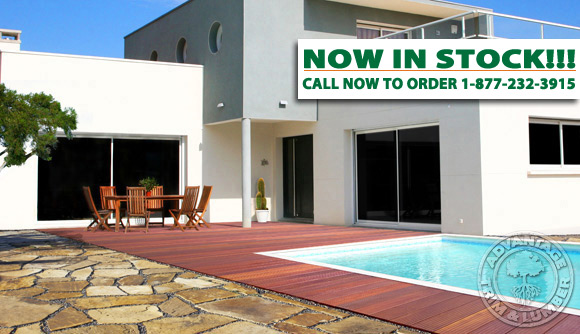You might have noticed that we’ve recently added Massaranduba decking to our exotic hardwood lineup.
I hear what you’re saying, “Massar-what? Why should I bother building a deck with this wood?”
If you were considering Redwood, Cedar, a red colored composite for your outdoor deck, then the answer is a resounding “Yes.” Sure, Massaranduba might be hard to pronounce but it’s also a very tough wood, period. (By the way, it’s pronounced Ma-Sa-Ran-Doo-bah). Just take a look at the specs and you’ll see why this decking line is also famously known as Bulletwood and Brazilian Redwood.
But, wait…isn’t Redwood one of the hardest woods? What makes Massaranduba any better?
A common misconception about domestic redwood is that it’s a hard wood. Nothing could be further from the truth. While the petrified redwood trees are famous for being as hard as rocks, a real redwood tree grown for lumber and decking purposes is one of the softest woods available. For instance, when conducting an apples-to-apples comparison between Redwood and Massaranduba, the differences are striking:
- Redwood is 7.5 times softer than Massaranduba (Redwood Janka Hardness = 420 vs. Massaranduba Janka Hardness = 3,190)
- Redwood is over 2 times weaker than Massaranduba (Redwood Bending Strength = 10,000psi vs. Massaranduba Bending Strength of 27,280psi)
Here is some further explanation into the differences between Massaranduba and Redwood.
